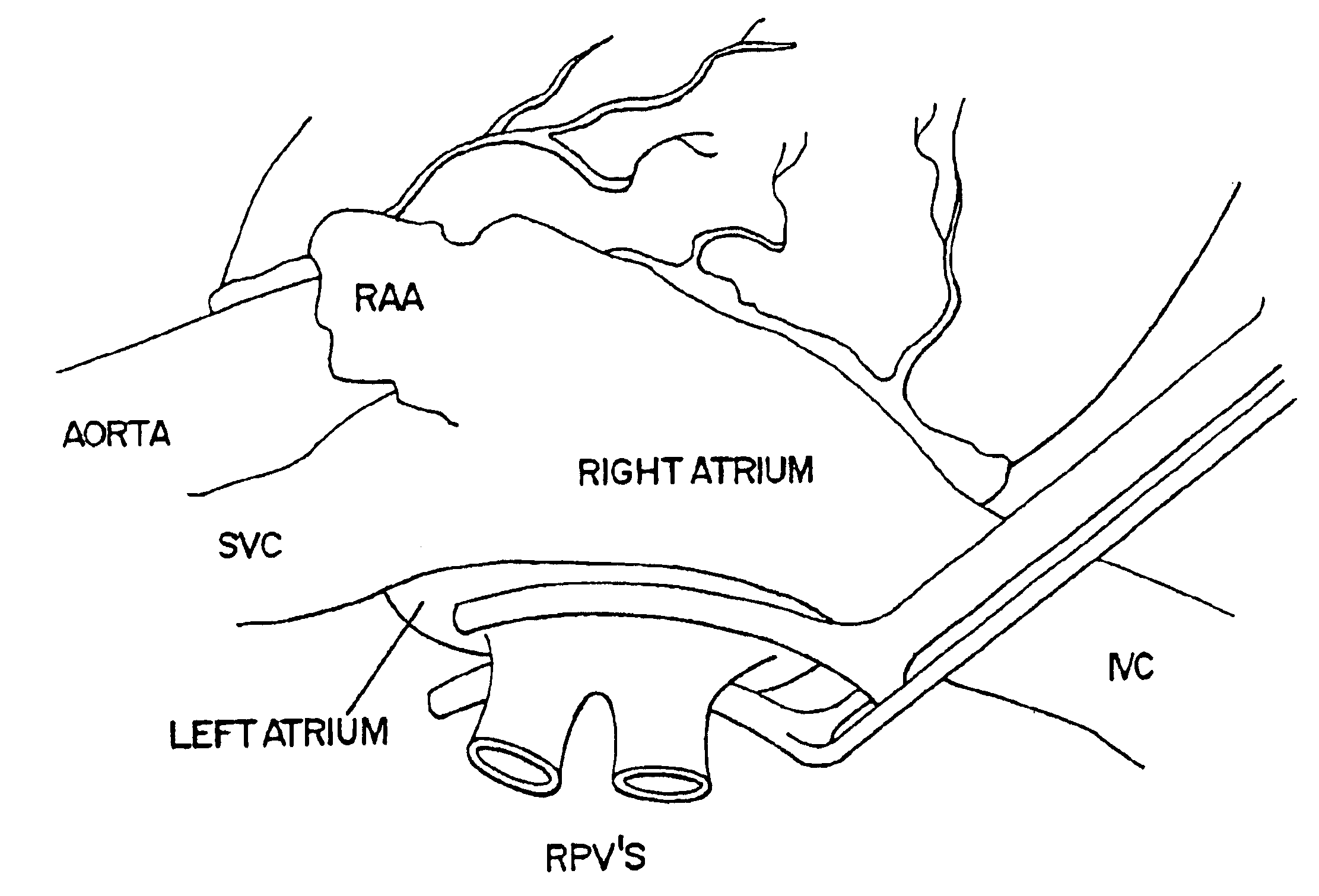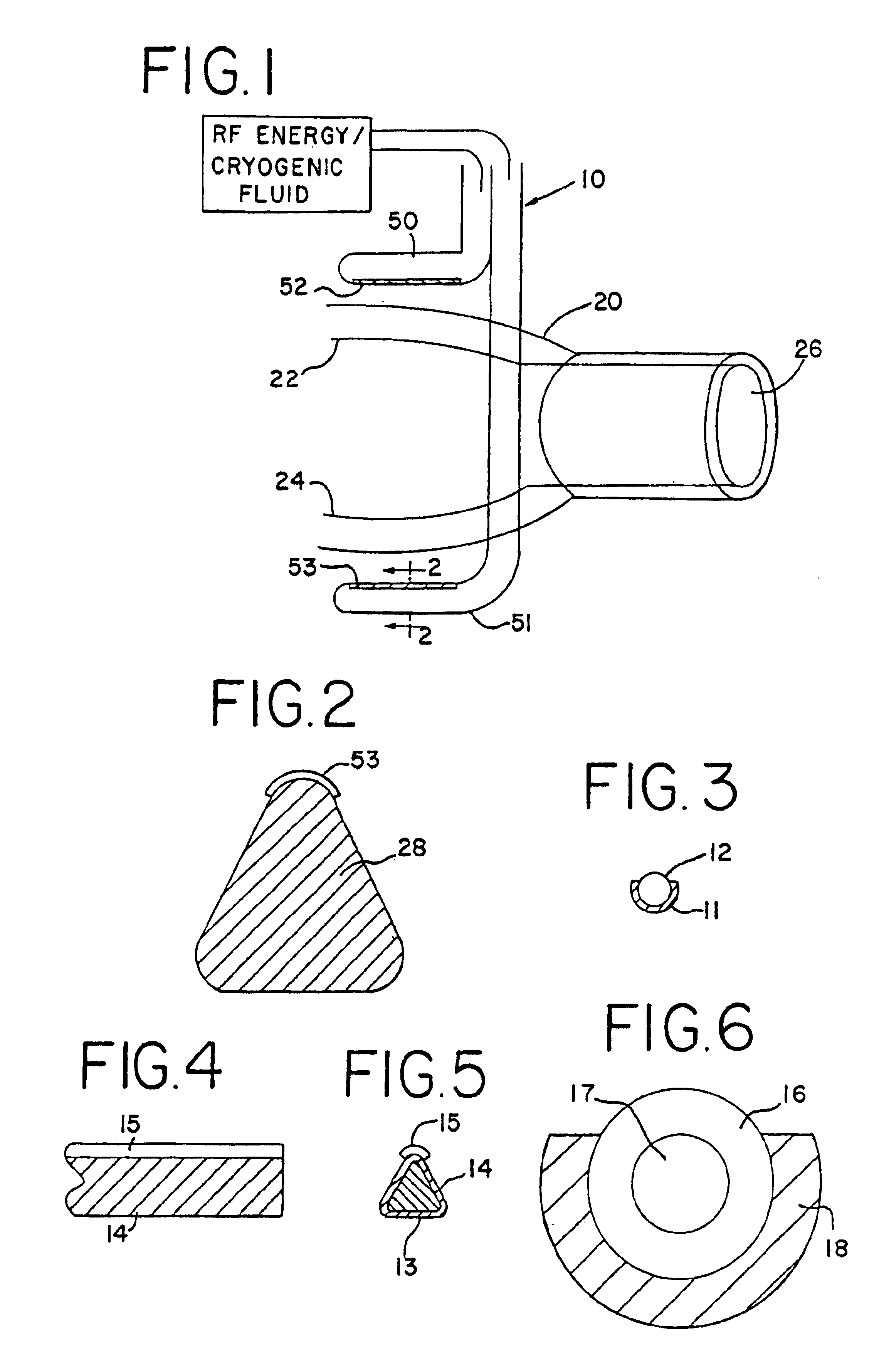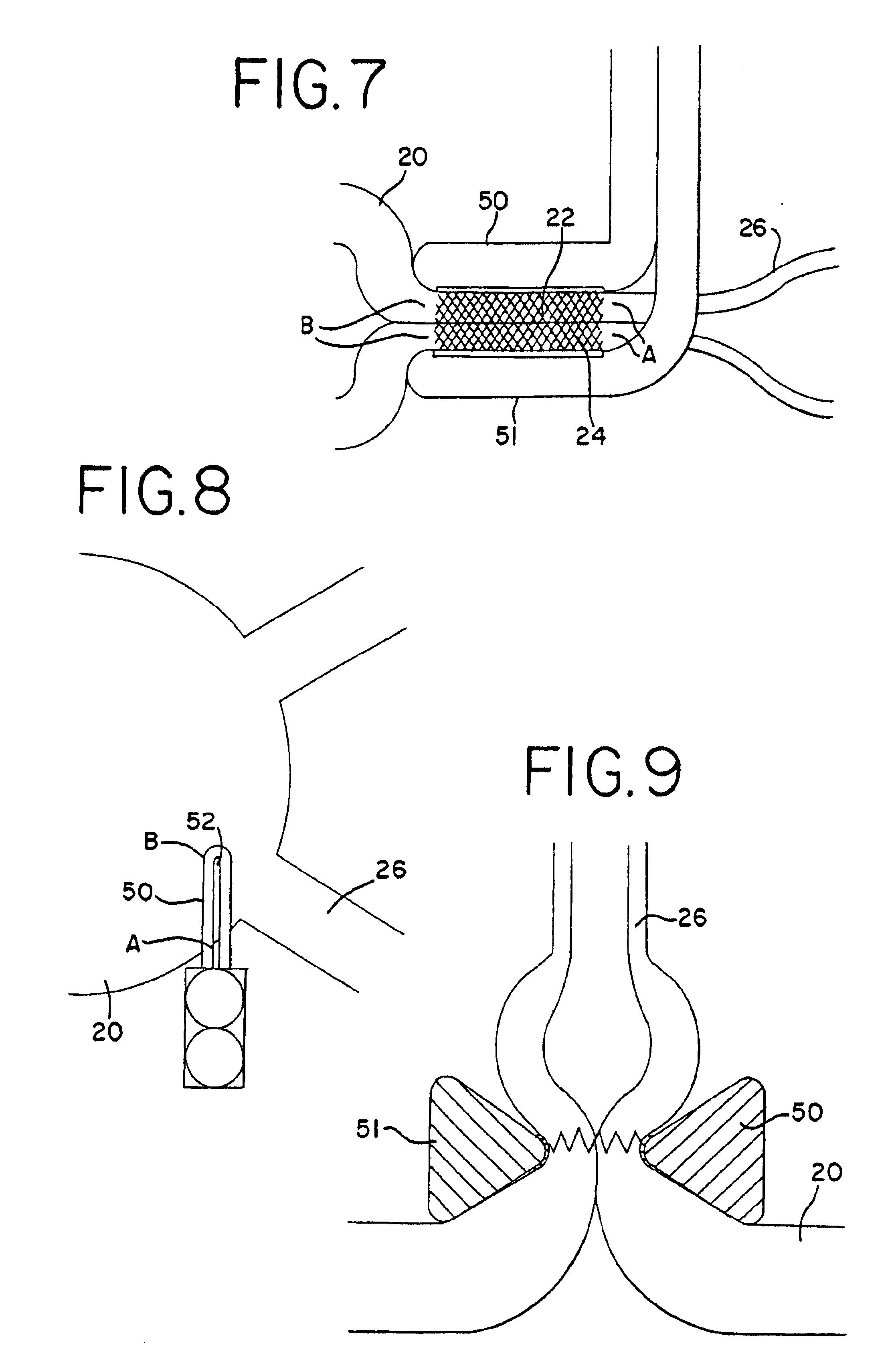Transmural ablation device
a transmural ablation and catheter technology, applied in the field of transmural ablation devices, can solve the problems of rf energy or ultra-low temperature freezing to the inside of the heart chamber, difficult positioning of catheters and associated electrodes or probes, and difficulty in precisely locating aberrant tissue, so as to minimize unnecessary damage to the heart tissue
- Summary
- Abstract
- Description
- Claims
- Application Information
AI Technical Summary
Benefits of technology
Problems solved by technology
Method used
Image
Examples
Embodiment Construction
[0100]With reference to the present invention, the compression of the atrial tissue is important because it insures that the exposed electrode surface or cryogenic probe is not in contact with any tissue or blood except the clamped tissue to be ablated. Specifically, the clamping of the tissue between the electrodes or cryogenic probes insures that the conductive or cooled area is only in contact with the clamped tissue. The compressed tissue acts to isolate the electrically active or cryogenically cooled surface, and prevents inadvertent energy delivery to other parts of the heart or blood. The outside temperature of the electrode can easily be monitored to insure that the temperature of the insulation in contact with blood remains below a critical temperature (40° C., for example).
[0101]In one form of the invention, transmural ablation using RF energy is accomplished by providing an atrial ablation device having a lower “j” clamp / electrode element and placing it on the atrial tiss...
PUM
 Login to View More
Login to View More Abstract
Description
Claims
Application Information
 Login to View More
Login to View More - R&D
- Intellectual Property
- Life Sciences
- Materials
- Tech Scout
- Unparalleled Data Quality
- Higher Quality Content
- 60% Fewer Hallucinations
Browse by: Latest US Patents, China's latest patents, Technical Efficacy Thesaurus, Application Domain, Technology Topic, Popular Technical Reports.
© 2025 PatSnap. All rights reserved.Legal|Privacy policy|Modern Slavery Act Transparency Statement|Sitemap|About US| Contact US: help@patsnap.com



